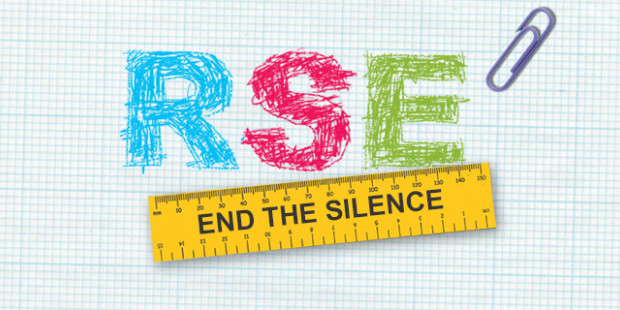In 2017, we had one of our biggest policy victories with the passing of the Children and Social Work Act, which will mean every young person in England receives RSE lessons.
In the ten months since Parliament passed this historic piece of legislation, we have been working with decision makers, young people, teachers and other charities to ensure that lessons are of the highest quality and inclusive for all pupils.
This week we submitted evidence [PDF] to the Department for Education as part of its consultation on what RSE lessons should look like. Our submission built upon our RSE report that uncovered the inconsistent and poor quality of RSE lessons across the country. We outlined our key principles of what should be included in lessons and how they should be delivered.
Properly resourced and delivered
RSE lessons must be considered as a core part of the school timetable and not be delivered through one-off lessons or ‘drop-down’ days – such an approach could see some young people miss out on vital information due to absence. Teachers must also have the skills and confidence to discuss the range of topics that lessons will cover.
At the moment the Government has not stated what funding will be made available to train RSE teachers, nor what resources will be provided to schools to deliver lessons.
LGBT-inclusive lessons
Our RSE report uncovered that 95% of young people did not receive LGBT-inclusive lessons and as such this has been a key focus of our campaigning work. LGBT issues should be interwoven throughout all RSE lessons and not simply taught in isolation.
Research by Stonewall found that three in ten teachers do not know if they are allowed to teach lesbian, gay or bisexual issues. This cannot continue if lessons are to be inclusive. All teachers must know what issues they can discuss in the classroom, otherwise we risk a large number of young people not being represented in lessons.
Up-to-date information about HIV
Every month, an average of seven young people are diagnosed with HIV. RSE lessons have an important role to inform young people about the modern day realities of HIV and how to protect themselves.
The availability of pre-exposure prophylaxis (PrEP), post-exposure prophylaxis (PEP) and that being on effective treatment means a person living with HIV cannot pass the virus on are huge milestones in HIV prevention and care, and these must be reflected in RSE lessons. Accurate information about HIV will also play a crucial role in addressing stigmatising attitudes towards the virus.
Integrated approach to lessons
For young people to be fully empowered, they must receive information about how to properly manage their sexual health. Schools should establish links with local HIV and sexual health services, who can have a role in delivering lessons and informing young people about what they can expect when accessing those services. This would also help to debunk myths about sexual health clinics.
Accessible for all
We believe all young people have the right to access RSE lessons and this is reflected in Article 14 of the United Nations Convention on the Rights of the Child, which states all children have the right to an education on health and wellbeing. This right should be respected and upheld in schools.
Accountable
The quality of RSE lessons will underpin the impact they can have on the lives of young people and therefore schools should be inspected against clear benchmarks by Ofsted. Whilst lessons will not be subject to exams, young people should none the less be able to demonstrate knowledge of a core set of competencies, for example how HIV can and cannot be transmitted, and where to access a sexual health clinic.
The Department for Education is expected to publish its draft RSE guidance – that will be used to deliver lessons – in the next few months. We will be calling on the Government to ensure that the principles within our consultation are reflected in this guidance.
This consultation marks an important milestone towards compulsory RSE lessons. Terrence Higgins Trust has lead the way in calling for high quality, LGBT-inclusive lessons, that also inform young people about the realities of HIV, but the journey is not over yet.



